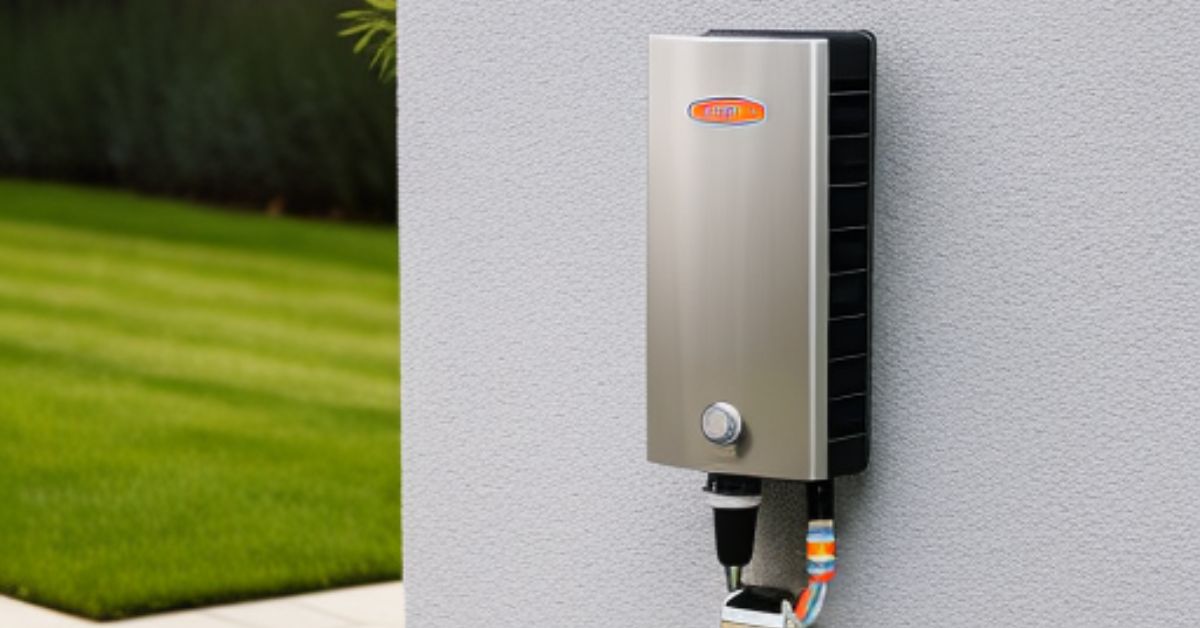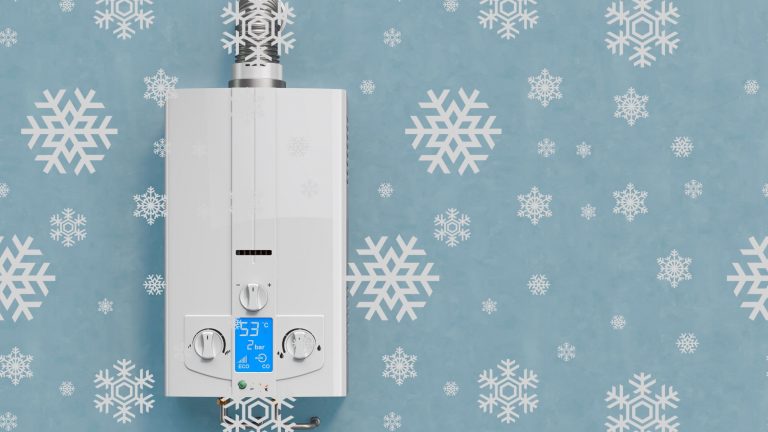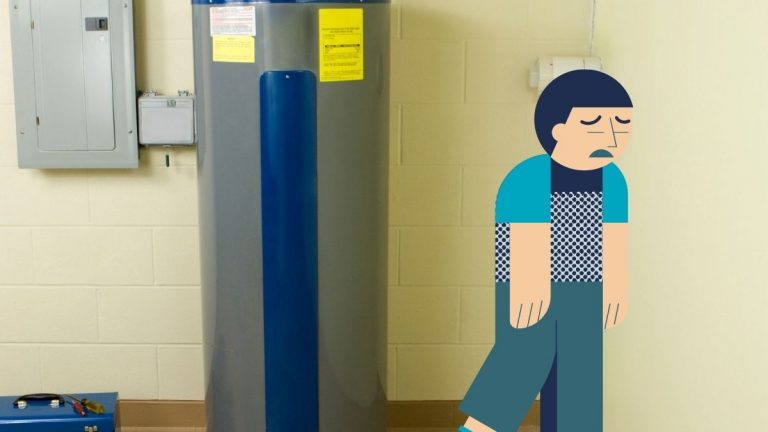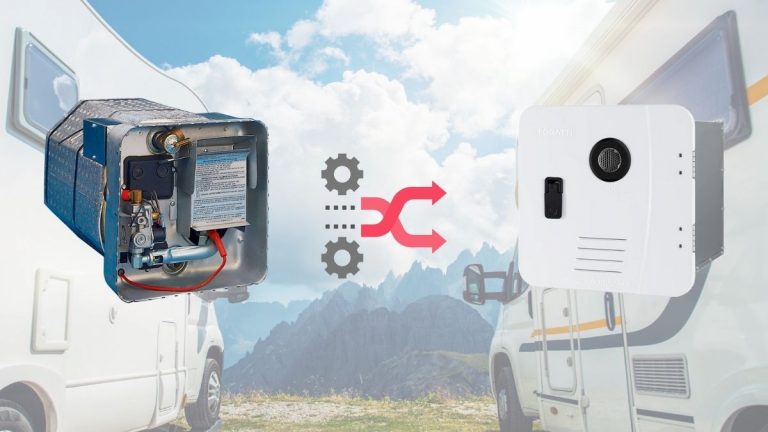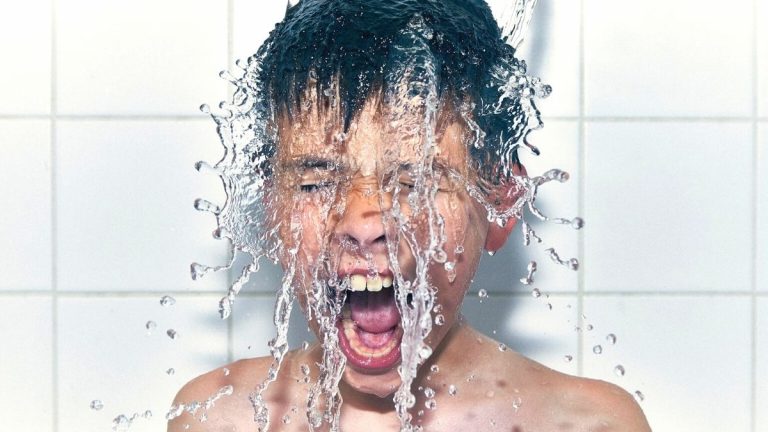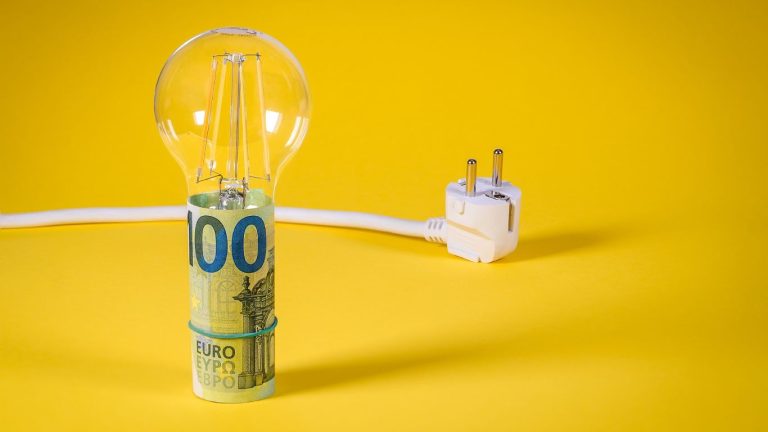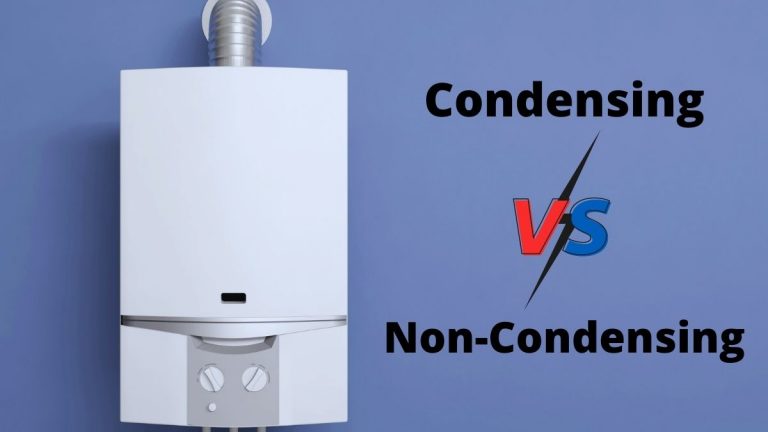Winter Guide: How to Keep Your Outdoor Tankless Water Heater from Freezing
Wondering how to keep your outdoor tankless water heater from freezing? I’ve got you covered; keep reading.
Winter weather can be beautiful, but it can also be a nightmare for homeowners with an outdoor tankless water heater.
If left unprotected, freezing temperatures will not only disrupt your hot water supply but can cause significant damage to your water heater and pipes, leading to costly repairs or even replacement.
That’s why it’s crucial to take precautions and keep your tankless water heater safe during winter.
In this today’s guide, we’ll provide you with everything you need to know to keep your outdoor tankless water heater from freezing.
We’ll discuss the importance of protecting your water heater, the signs of freezing, and the best solutions to keep your system running smoothly all winter long without freezing.
With some preparation, you can enjoy hot water whenever you need it without fearing costly repairs.
Let’s get started!
Understanding why outdoor tankless water heater freezes
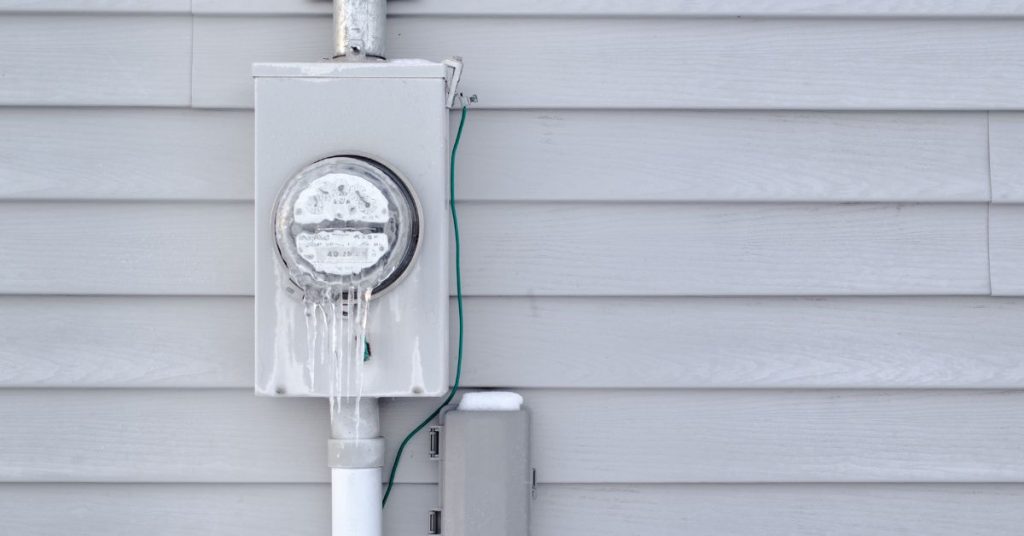
Tankless water heaters are an efficient way to heat water in homes, but since it involves water, it’s vulnerable to the problem of freezing.
To prevent tankless water heaters from freezing, it’s a good idea first to know how it works and what causes them to freeze.
Work mechanism of tankless water heaters
Unlike traditional water heaters, tankless water heaters don’t store water in a tank.
Instead, they heat the water as it passes through the unit.
When hot water is needed, cold water enters the unit, and a heat exchanger heats the water to the desired temperature.
The hot water flows out of the unit and to the point of use. So no stored water in it.
Factors leading to tankless water heater freezing
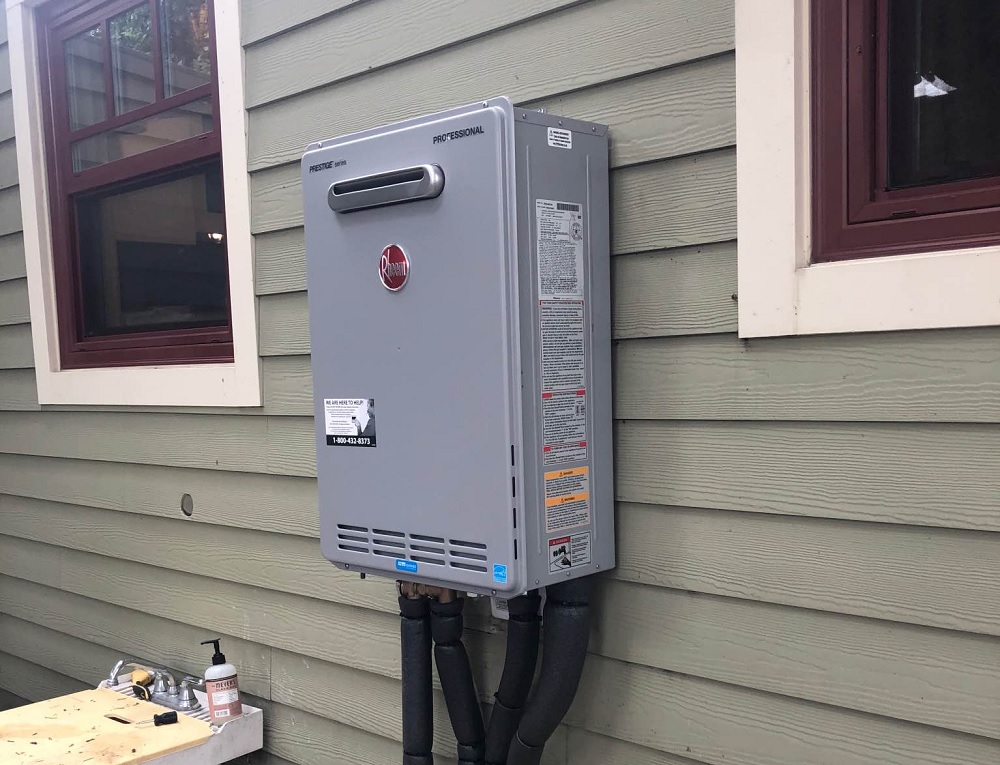
Several factors can cause a tankless water heater to freeze. One of the most common causes is a power outage or interruption in the gas supply, which can cause the water inside the unit to freeze.
Another cause is the failure to properly drain the unit, which can lead to water being trapped inside and freezing. Poor insulation, as well as low ambient temperatures, can also contribute to freezing. Also, when you don’t use the heater during freezing weather for an extended period(like at night), the appliance freezes due to a lack of heat as it doesn’t ignite.
How freezing affect the tankless water heaters
When water freezes, it expands. This expansion can cause the pipes inside the heater to burst, leading to water damage and costly repairs.
Even if the pipes don’t burst, the freezing and thawing processes can cause damage to the internal components of the unit.
If the unit has frozen, it’s crucial to take action as soon as possible to prevent further damage.
Telltale signs your outdoor tankless water heater is freezing
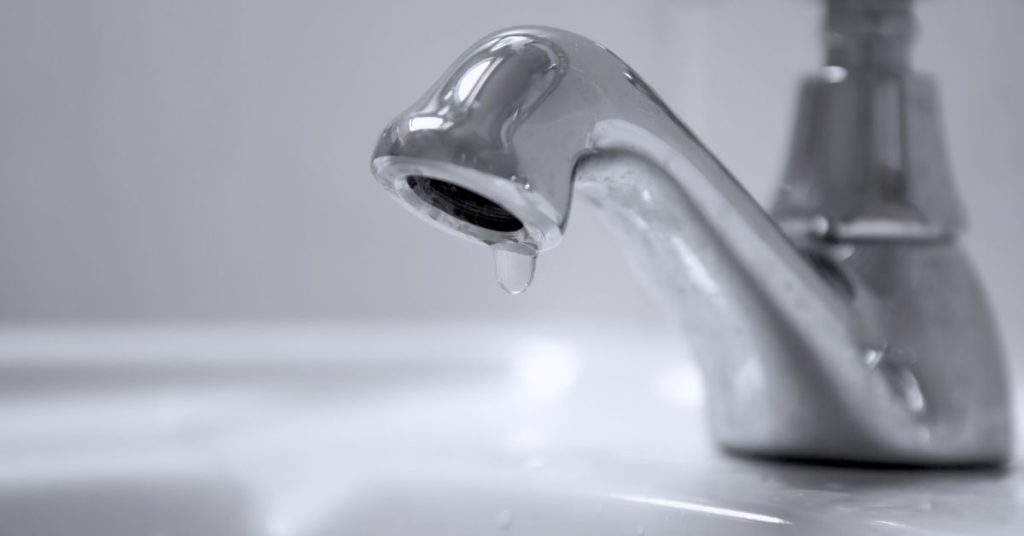
If you’re concerned about your outdoor tankless water heater freezing, knowing the signs to look for is essential.
Here are some indications that your outdoor tankless water heater may be freezing:
- No hot water: If you turn on your hot water tap and there’s no hot water, it could be a sign that your outdoor tankless water heater is frozen.
- Strange noises: If you hear strange noises from your water heater, such as gurgling or popping sounds, it could signal ice buildup in the unit.
- Low water pressure: If you notice a decrease in water pressure when you turn on your hot water tap, it could be due to ice buildup in your tankless water heater. It’s also possible that the inlet pipe that feeds cold water to the heater is frozen.
- Freezing temperatures: If the outdoor temperature drops below freezing and you haven’t taken any preventative measures to protect your tankless water heater, it may freeze and become damaged. But yeah, you will want to check that for yourself by opening the faucet.
Best practices to keep outdoor tankless water heater from freezing
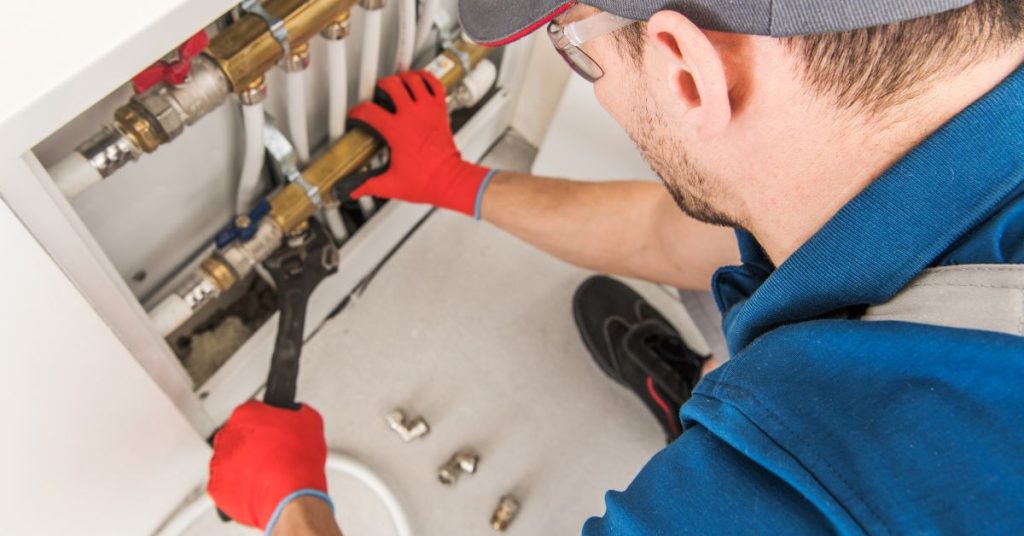
Be it winter months or a region that’s cold all year long, it’s always best to prevent that critical appliance of your home from preventing so do you have to face hot water disruption. And we haven’t even talked about the money you save simply by avoiding the freeze damage.
Some best practices for preventing your outdoor tankless water heater from freezing include:
1. Freeze prevention routine: Step-by-step guide
- Turn off the water heater: Start by turning off the power supply to the tankless water heater.
- Turn off the water supply: Locate the valve that controls the water supply to the tankless water heater and turn it off.
- Drain the water heater: Open the drain valve at the bottom of the heater and drain all the water out.
- Disconnect hoses and pipes: Disconnect any hoses or lines connected to the tankless water heater to allow all water to drain out.
- Clean the water filter: Remove the water filter and clean it to remove any sediment or debris.
- Cover the unit: Once the tankless water heater is completely drained, cover it with an insulated cover to protect it from the cold weather.
2. Running water overnight to prevent freezing
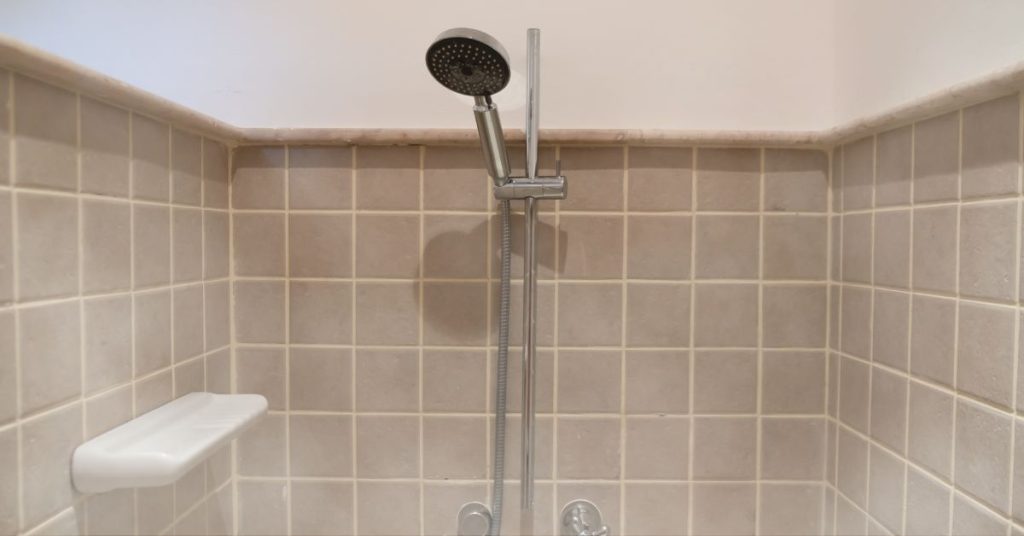
If you anticipate freezing temperatures overnight, you can run a small amount of water through the tankless water heater to prevent freezing.
You can leave a faucet or showerhead slightly open, keeping water flowing through the system and preventing it from freezing.
It will keep the water moving and prevent it from freezing. But it may increase your monthly water and electricity bill (Know how much electricity your tankless water heater is using here).
3. Use insulated pipes to prevent heat loss
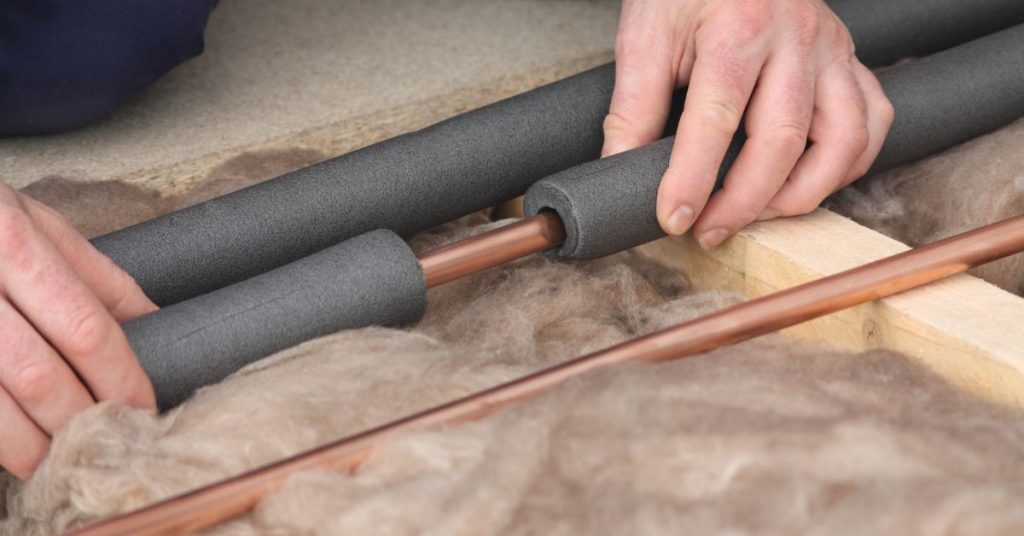
Insulated pipes can prevent heat loss and keep the water in the pipes from freezing.
By wrapping your pipes with insulation, you can reduce the heat lost through the pipes and keep the water in your system warm.
Ensure any exposed pipes leading to the tankless water heater are insulated. For starters, check out our guide to protect pipes from freezing during an outage.
4. Additional measures to prevent freezing
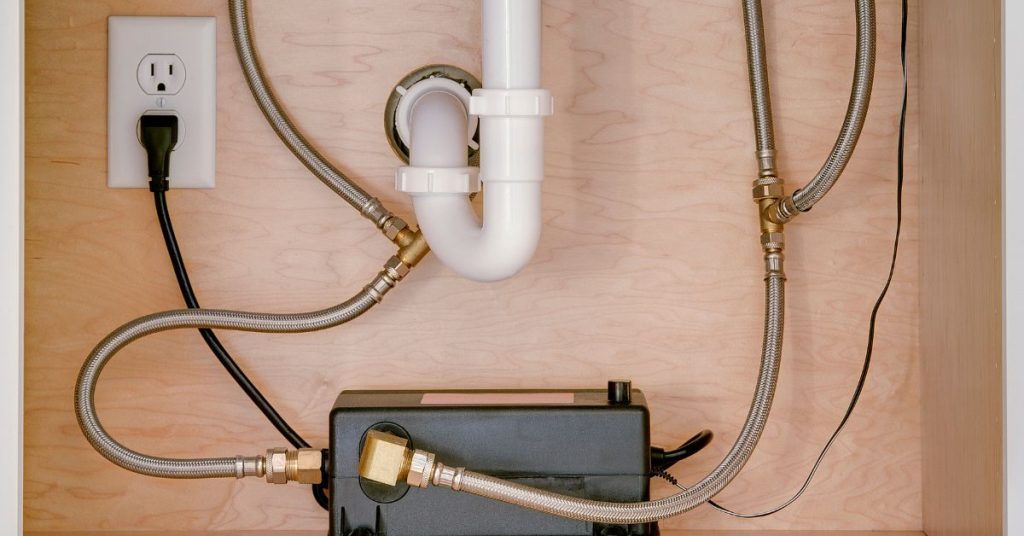
- Install a recirculating pump: It can keep the water circulating, preventing it from sitting still in the pipes and freezing. [Check out this top recirculating pump for tankless water heaters]
- Choose a heater with inbuilt freeze protection: Some tankless water heaters come with inbuilt freeze protection, which automatically prevents the heater from freezing.
- Install a freeze protection kit: A freeze protection kit can be added to an existing tankless water heater to provide additional protection against freezing.
- Set up a freeze protection valve: This valve automatically releases a small amount of water when the temperature drops below a certain level. It prevents the water in the system from freezing and causing damage.
- Keep the unit warm: If possible, install your tankless water heater in a protected, heated location to prevent it from freezing. You can also use a space heater or heat lamp to keep the area around the unit warm.
- Regular maintenance: Regular maintenance of your tankless water heater is vital to prevent freezing and other problems. We will talk more about this in a second.
Maintaining outdoor tankless water heater in winter
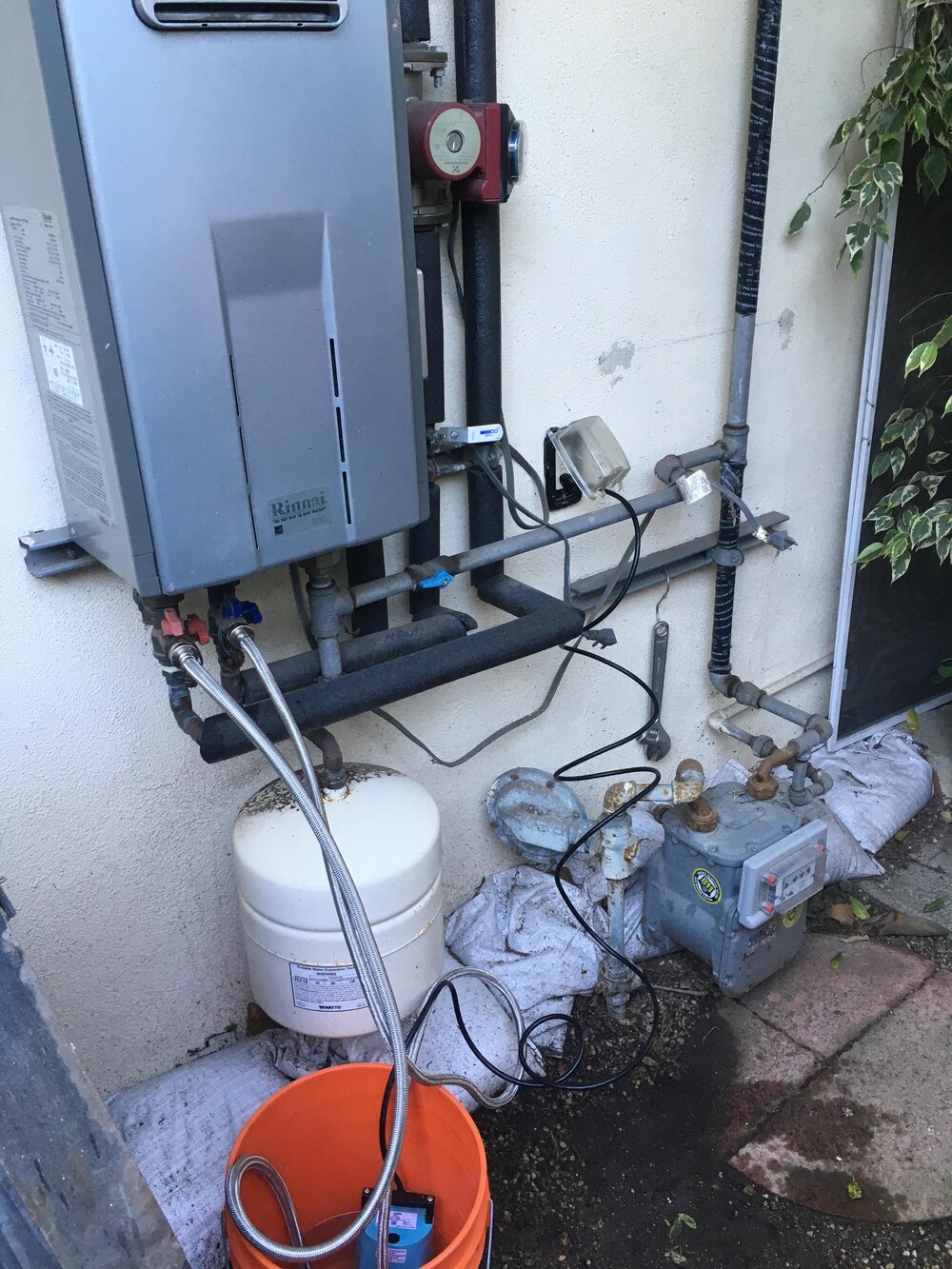
Maintaining an outdoor tankless water heater during the winter is essential to ensure an uninterrupted hot water supply and prevent damage to the unit.
Here are some tips for winter maintenance of an outdoor tankless water heater:
Winter maintenance tips
- Drain the unit by opening the drain valve and remove any sediments and scales via the water heater flushing method to prevent buildup and corrosion.
- Turn off the temperature control panel and disconnect the electrical power to the water heater before opening the valves to release pressure in the pipes. Put a 10 ltr bucket underneath the water heater to catch the water. Remove the drain caps on the hot and cold isolation valves to drain the water in the unit.
- Use heat tapes to prevent exposed waterlines from freezing.
- Run a trickle of water overnight to keep the pipes warm and avoid freezing.
- Cover the unit with a waterproof and breathable cover to protect it from snow and ice buildup.
Checking for leaks and damages
- Inspect the unit for leaks, damage, or cracks in the pipes, valves, and exterior. Get those leaks professionally repaired before the winter months.
- Check the insulation around the lines to ensure that it is in good condition, and replace it if necessary.
When to call in a professional
- If you detect any leaks or damage to the unit, contact a licensed professional to repair it before the winter months.
- If you are unsure how to winterize your outdoor tankless water heater correctly, you should seek the help of a licensed professional to avoid any potential damage to the unit or personal injury.

What can I do to protect my outdoor tankless water heater from freezing?
There are several things you can do to prevent your outdoor tankless water heater from freezing, including properly insulating the unit, installing a cold weather kit, keeping the unit away from drafts, and running a trickle of water overnight through the hot side on the furthest fixture with the gas off to the heater.
How can I properly insulate my outdoor tankless water heater?
Properly insulating your outdoor tankless water heater can help prevent freezing. You can wrap heat tape around the pipes to protect them and apply insulation to the lines that carry water to and from the tankless unit.
What is a cold weather kit for an outdoor tankless water heater?
A cold weather kit is a special accessory that helps to keep an outdoor tankless water heater warm during cold weather. It typically includes insulation and other materials to protect the unit from freezing.
Should I turn off the gas supply to my outdoor tankless water heater to prevent freezing?
Yes, you should turn off the gas supply to your outdoor tankless water heater to prevent freezing. It is typically done as part of the process of draining the unit.
How can I drain my outdoor tankless water heater to prevent freezing?
To drain your outdoor tankless water heater to prevent freezing, turn off the gas supply, switch off the cold water to your unit, open the drain down solenoid valves on the hot/cold water lines, open various warm water fixtures within your home, place a bucket under the unit to catch the water, and remove the drain cap and open the valves.
Over to you!
Freezing winter weather can threaten the functioning of an outdoor tankless water heater, leading to disrupted hot water and costly repairs or replacement if not protected. Understanding the factors that cause tankless water heaters to freeze is crucial for preventing the problem. Factors that can cause freezing include power outages, insufficient insulation, low ambient temperatures, and failure to drain the unit properly. Prevention measures such as turning off the water heater, turning off the water supply, draining the water heater, disconnecting hoses and pipes, and using insulated pipes can prevent freezing.
Additional measures such as installing a recirculating pump, choosing a heater with inbuilt freeze protection, establishing a freeze protection kit or valve, keeping the unit warm, and regular maintenance can also prevent freezing. Maintaining the outdoor tankless water heater in winter is crucial to ensure an uninterrupted hot water supply and avoid damage to the unit.
By taking precautions and implementing prevention measures and maintenance tips, homeowners can enjoy hot water all winter without fearing costly repairs.

